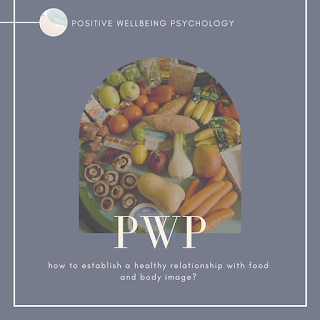5 Common Questions Related to Eating Disorders
It is important to highlight that everyone’s experience of an eating disorder is extremely unique due to a range of factors but the most important to acknowledge that eating disorders are not a lifestyle choice, or a cry for attention. The Butterfly Foundation has findings that indicate over a million Australians are shown to currently experiencing an eating disorder, and less than a quarter are getting treatment or support.It is unlikely that one single factor will lead to an eating disorder developing. An individual will find a combination of risk factors, including your genetics, emotional factors and cultural influences.
While research findings suggest that a large portion of individuals struggling with an eating disorder areoften left untreated in Australia, we are slowly noticing an increase to available supportand Government funding to better support families in receiving the support that is needed. Successful treatment and complete recovery from an eating disorder is certainly possible. But because eating disorders are a complex mental illness, individuals who are suffering from an eating disorder need expert treatment and support from eating disorder psychologist in melbourne.
Here are the common FAQs answered related to eating disorders.
#1. What is an eating disorder?
Eating disorders are not limited only to food but extend to other serious medical health conditions. An eating disorder is a serious mental illness, characterised by eating, exercise or body weight/shape becoming an unhealthy preoccupation of someone’s life.Eating disorders are associated with a spectrum of psychological conditions that may need medical or psychological attention. Eventually, it impacts body weight and/or body shape. In extreme cases, eating disorders can be responsible for serious health consequences and even result in death if not given timely treatment.
People who suffer from eating disorders can have different symptoms. However, the key ones comprise severe restriction of food, food binges, or certain purging behaviours such as vomiting or over-exercising. Though eating disorders can impact people of any gender at any life stage, they are often reported in adolescents and young women.
#2. Where to start?
In today’s time, one out of ten people suffers from disorders due to eating. Eating disorders can cause a threat to human lives. In case you or anybody you know is dealing with health issues due to eating or body image problems, the highly skilled psychologists at Positive Wellbeing Psychology areready to help you in the right direction.
It is important that you reach out to your GP as regular medical monitoring is required when experiencing an eating disorder and the body is usually not receiving the fuel that is required for basic functioning. Due to this, serious medical health issues can occurs including putting strain on the heart and organs in the body . By linking up with a trusted GP with a special interest in eating disorders, you can expect to have asked for blood tests and referred to a psychologist and dietician to assist with guiding your body gently back into a healthy state.
#3. What are the long-term impacts of an eating disorder?
Eating disorders are referred to as serious mental illnesses. They are not a lifestyle choice but are serious and to a greater extent life-threatening mental illnesses. They are associated with disturbances in behaviours, thoughts, and attitudes towards food, eating, and body weight & shape. The problems due to unhealthy eating patterns have serious impacts upon a person’s life and result in risky medical, psychiatric, and psychosocial consequences.
The rate of increase in eating disorders is in prevalence. The disorders due to improper eating do not discriminate and can happen in people of any age, weight, size, shape, gender identity, sexuality, cultural background, or socioeconomic group.
The long-term impacts of eating disorders are as follows:
● The long-term impact of issues due to improper eating is related to serious medical and psychological complexities.
● If a person is facing some issues due to eating, they might experience impairment in social & functional roles.
● The effect might comprise of psychiatric and behavioural problems, medical complexities, social isolation, temporary disability, and a higher risk of death as a result of medical complications or even suicide.
The consequences of eating disorders are not only faced by the individual but it is encountered by the family of the person. The impact may result in caregiver stress, loss of family income, disruption to family relationships, and a higher risk for suicide.
#4. What does disordered eating look like?
The term disordered eating refers to behaviours like dieting. It is one of the most common risk factors for the cause of any eating disorder. They are usually severe and life-threatening mental illnesses.
Disordered eating is a scenario that happens between normal eating and an eating disorder. It can have symptoms such as behaviours of eating disorders, but at a lesser frequency or lower level of severity. It comprises restrictive, compulsive, irregular, or inflexible patterns in eating.
Dieting is the most common type of disordered eating. The other behaviours that are associated with disordered eating are fasting, binge eating, skipping meals, avoiding a specific food or food group, self-induced vomiting, use of steroids and creatine, misuse of laxatives, diuretics, enemas, and using pills for dieting.
#5. Common myths about eating disorders?
It is crucial to understand the real facts about mental health and eating disorders. It leads towards a more aware community and also improves proactive identification, prevention, and seeking the right help.
The common myths or misconceptions about eating disorders or disordered eating are as follows:
● Eating disorders are not serious - The greatest myth of eating disorders is that it is not serious and is a choice of lifestyle. The dissatisfaction of the body and eating disorders are related and it can sometimes encourage people to believe that disordered eating habits showcase a lifestyle of choice. While the truth is that eating disorders are risky and have serious life-threatening mental illnesses risks.
● Dieting is part and parcel of routine life - There are studies that prove that most people, especially adolescents, are confused about eating disorders. Many people identify eating disorders as potentially harmful and they believe that dieting is a normal part of growing up. The truth is there are many mental and physical consequences that can happen due to dieting practices.
● Eating disorders don’t need attention - Another myth is that people suffering from eating disorders do not require attention. It is not that important to worry about. Such misconceptions are quite common and it might discourage the individual from undergoing treatment on time. It is highly imperative that such people who face issues need treatment and at the right time. Delaying treatment can impact the clinical outcome.
● Families are to blame for eating disorders - It’s one of the usual historic misconceptions that family members can cause eating disorders. Medical professionals consider it a factor contributing to an eating disorder instead of the resources available to help a person.
● Disordered eating impacts adolescents in particular - There is a particular period when the eating disorders start i.e. around 18 years. It is relatively high in women especially with those going through key transition periods like pregnancy, menopause, etc. The risk results in the misconception that eating disorders.



Comments
Post a Comment